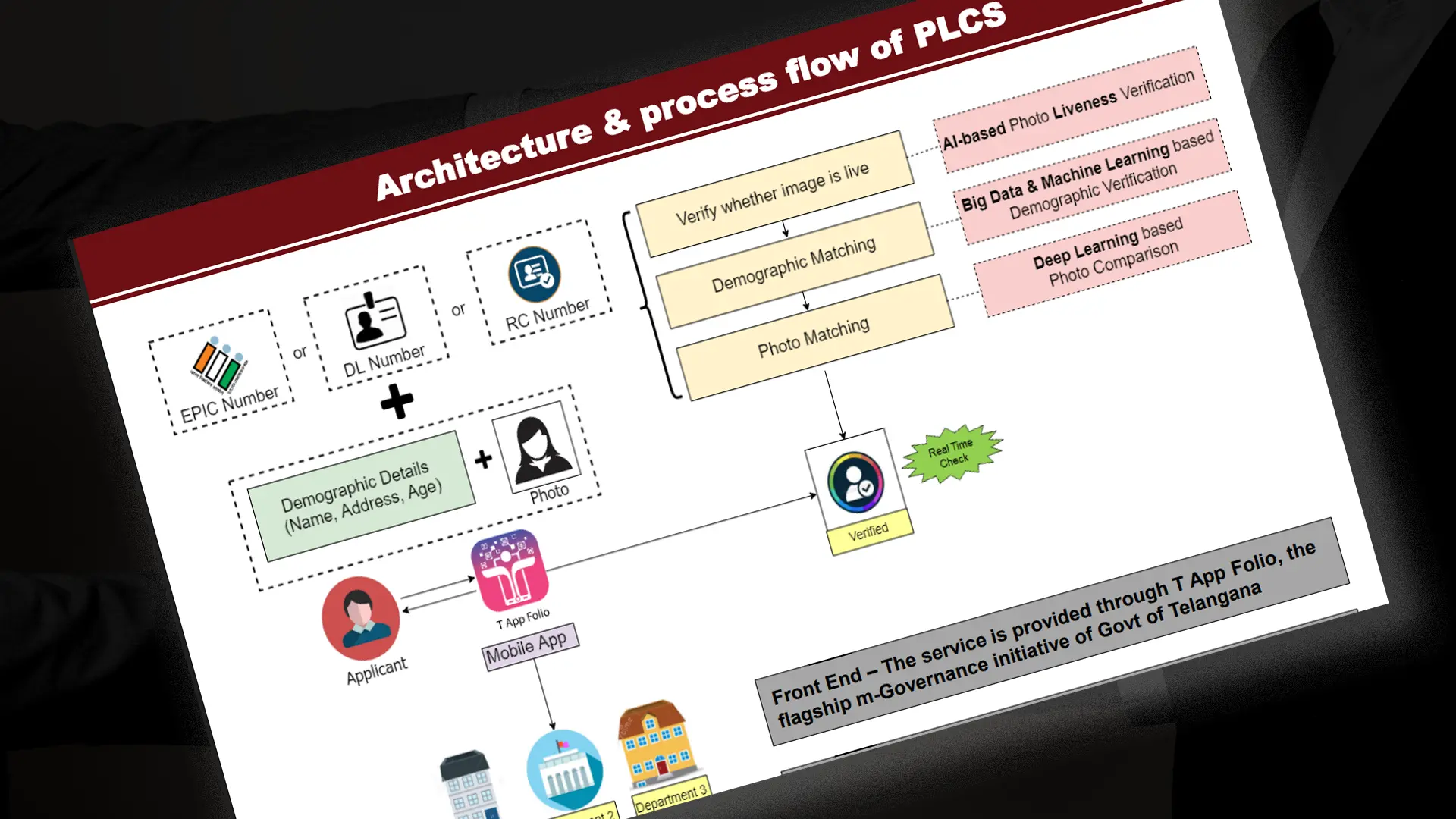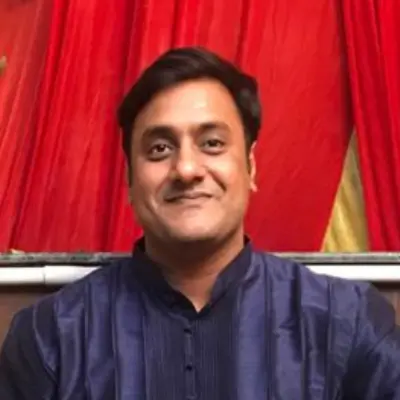
New Delhi: The Election Commission of India (ECI), the custodian of India’s voter roll, maintains a database containing demographic details, photographs, addresses, and phone numbers of all Indian voters. Its mandate is to use this data solely to conduct elections transparently and efficiently. Recently, Chief Election Commissioner Gyanesh Kumar stated that the ECI would not share video recordings of polling to protect the privacy of women voters.
However, The Reporters’ Collective has discovered that the ECI shared voter data, including photographs, with the Telangana state government in at least one instance. The state government, then led by the Telangana Rashtra Samithi (now Bharat Rashtra Samithi), hired private firms to work with this data.
In November 2019, Telangana launched the Pensioner Live Verification System, a software process to verify the demographic details and photographs of pension recipients. Private companies were contracted to develop, modify, and test the software. This marks the first known case where the ECI, an independent constitutional authority, shared its voter database with a state government for a project involving private firms.
The terms under which the ECI shared this data with third parties remain undisclosed. The voter roll, a centralised database overseen by the ECI, can only be accessed with its permission.
The Reporters’ Collective sent written queries to the ECI regarding the terms of the data sharing. The ECI had not responded by the time of publication. This story will be updated if a response is received.
Did Private Companies Access ECI Data?
An RTI application that privacy activist S.Q. Masood filed with Telangana’s Information and Technology Department revealed that, in 2019, Hyderabad-based tech firm Posidex Technologies Private Limited worked on the Pensioner Live Verification System. Documents provided in response to Masood’s query included an invoice from Posidex detailing work on various state government software projects, including the pension verification system, which confirms whether a citizen is alive to receive a pension.
The invoice specified that Posidex developed “Four web services under this module and integrated them with T-App, Election Department (EPIC data), and Pension Department Data.” EPIC data refers to the Election Photo Identity Card data, or the voter roll maintained by the ECI. T-App is the application used by the Telangana government to verify pensioners’ identities in real time.

The Telangana government later renamed this process as Real-Time Data Authentication (RTDAI). Pension beneficiaries were required to upload selfies, which served as proof of identity and proof of life.
The Reporters’ Collective contacted Posidex to clarify the terms under which it accessed the ECI’s voter database. Two company officials provided conflicting responses.
G.T. Venkateshwar Rao, Posidex’s managing director and a former Indian Revenue Service officer, stated, “The project is designed and owned by the Government of Telangana. All datasets used for the application and approvals for use are decided by the Government of Telangana. The application is hosted by the Government in its data center. We have no data access.”
In contrast, Venkat Reddy, co-founder and chief executive officer of Posidex, claimed, “To the extent I am aware, the application does not use ECI data.” He added, “The app is owned by the Telangana Government and was not built by us, but by another company. We only provided a small component to simplify authentication, and it does not interact with any database.”
However, Posidex’s invoice contradicts these claims. It details the integration of Amazon Web Services (AWS) into the state government’s app to compare live photos uploaded by pensioners with their voter ID photos, stating, “Integration done with AWS to compare live photo with EPIC card photo.”
A 2023 presentation by the Telangana government further contradicts Posidex’s claim that the application does not interact with any database. The presentation outlined how RTDAI, initially developed for pensions, was expanded to other programs. In 2020, RTDAI was trialed during municipal elections at ten polling booths for facial authentication of voters, using a database that included photographic and demographic details from ECI voter IDs. That same year, RTDAI was extended to the Degree Online Services, Telangana (DOST) portal, which verifies student identities through facial recognition, again using EPIC ID data for validation.

On August 28, 2025, privacy activist Srinivas Kodali filed a complaint with Telangana’s Chief Electoral Officer (CEO) alleging unlawful sharing and misuse of electoral roll photographs and names by the Telangana government for its facial recognition applications via RTDAI. Kodali noted that RTDAI has become a general-purpose tool used by Telangana’s Departments of Transport, Education, and other purposes deemed necessary by the state.
It remains unclear when the ECI first provided Telangana access to the voter database or whether access continues. Kodali’s complaint suggests the data sharing began as part of the ECI’s 2015 initiative to link EPIC IDs with Aadhaar. A letter dated April 25, 2018, from Telangana’s CEO to the Deputy Election Commissioner confirmed, “CEO Office supplied/shared the Electoral Roll/EPIC database with the SRDH application.” SRDH, or State Resident Data Hub, is a government portal containing key demographic information, including names, ages, genders, photographs, and addresses at the state level.

Kodali alleges that this transfer enabled the Telangana government to access demographic and facial data collected for electoral purposes, which is now used for various administrative functions under T-App Folio, including the Pensioner Live Verification System. The Reporters’ Collective has reviewed the letter from Telangana’s CEO acknowledging access to EPIC data for SRDH.
In his complaint, Kodali called for an audit by Telangana’s CEO and demanded that all EPIC photographs be removed from external agencies other than the CEO’s office. He stated, “The Election Commission of India ignored the Supreme Court’s 2015 judgement on Aadhaar-voter ID linking, leading to voter data being shared with the Telangana government. The actions of Telangana’s CEO have created problems resulting in the misuse of electoral photographs.”


.avif)









